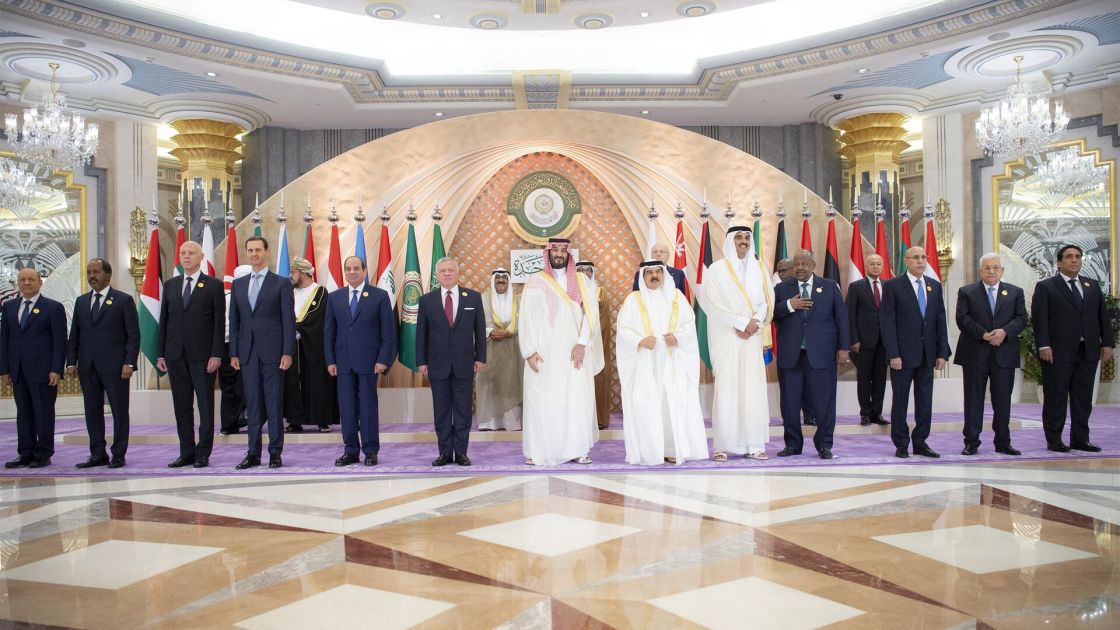- Editorials
- Posted
Kassioun Editorial 1123: What After the Arab Summit?
The Syrian political, media, and general public circles are busy trying to understand the meanings of Syria’s official participation in the Arab Summit in Jeddah on Friday, May 19, after its membership was suspended in the Arab League for 12 years.
What should not be surprising is the agreement between the regime’s extremists and the opposition’s extremists in their understandings. Both have expressed, one way or another, officially and semi-officially, that this participation means burying the political solution and particularly UNSC Resolution 2254. In essence, this reflects the implicit unified position for all extremists in being against the political solution.
There are four main ideas through which it is possible to understand Syria’s return to the Arab League and Syria’s official attendance at the Arab summit, and the subsequent conclusions that can be deduced from that.
First: The decision to suspend Syria’s membership in the Arab League came mainly during a stage in which the international balance of power had not crystallized in the way it is today, and the Arab League at that time was closer in its positions to the West, and perhaps the position on Libya is one of the clearest indications of that.
Second: As a decade or more has passed, it has become clear to all Arab countries, particularly the main ones, that they are living the fable that ended with: “I was eaten on the day the white bull was eaten” (an Arab saying that means things that you turned a blind eye to when they were happening to another, will haunt you later and will happen to you). More clearly, these countries have become certain (especially Saudi Arabia and Egypt) that they themselves are being targeted by the West with fragmentation and destruction in the context of the American-Zionist action aimed at preventing global transformation and preserving hegemony and the unipolar system. That is, reinstating Syria to the Arab League, for a good number of the main Arab countries, is one of the steps to defend national and geostrategic security of these countries against Western targeting. This was evident through the simultaneous pursuit of reaching the goal of zeroing out regional conflicts with both Turkey and Iran, against Western wish.
Third: For quite some time, the international division over Syria was represented by the contradiction between two groups: the Astana group and the Western small group. The latter was deriving an essential part of its ability to influence the Syrian situation from two issues: agreement with Turkey (and this has become almost non-existent with the development of the Astana group and the increase of the Turkish-American contradiction), and agreement with Arab countries, so that Western action seems to come within the framework of an “Arab mandate” that is a continuation of the Arab League’s decision to suspend Syria’s membership in 2011. Now, with Syria’s official return to the Arab League and the Arabs getting involved in settling the situation in Syria, and with existing agreements and understandings with Russia, Turkey, and Iran, the Arab group will occupy the position occupied previously by the Western small group, but this time not in the context of contradicting Astana, but within the framework of cooperating with it. This means, as a result, a further decline in the West’s ability to influence, and consequently, an increase in the chances of a comprehensive political solution and stability in Syria.
Fourth: Suspending Syria’s Arab League membership implicitly meant withdrawing recognition of the Syrian regime, and this was not a coincidence, rather it was intentional. The exact intention was not only for internationalization, but also for closing the door to a political solution, because the political solution, since the Geneva Communiqué in 2012 and until UNSC Resolution 2254, is based on recognizing both the regime and the opposition and a dialogue between them. Therefore, withdrawing recognition of either of them means withdrawing recognition of the political solution and surrendering to the military solution, which was what was wanted by the West, as well as what was wanted by the extremists on both sides, and it was in the interest of the continuation of the extremists at the expense of killing the Syrian popular movement with violence, repression, and an attempt to perpetuate sectarian and national divisions and imaginary dichotomies in all their forms.
The bottom line is that Syria’s return to the Arab League is a step forward towards a political solution, in parallel with moving towards the Syrian-Turkish settlement, and towards cooperation and consensus between the main Arab countries and Astana. All of these are the necessary coordinates for the implementation of a comprehensive political solution in accordance with UNSC Resolution 2254.
In a word, the real beneficiary of what is happening is not the extremists on this side or that, but rather the complete opposite of what they are trying to portray, and they are the ones most adversely affected in the end.


